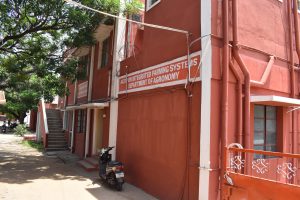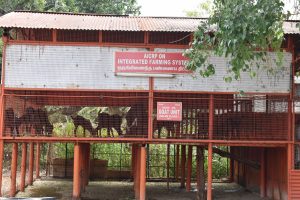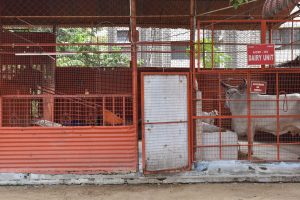ALL INDIA COORDINATED RESEARCH PROJECT ON INTEGRATED FARMING SYSTEM
Date of start : 1973
Brief Information of the Centre
The All India Coordinated Research Project on Integrated Farming Systems is one of the largest projects being operated in the country. The project was initiated during 1956-57 as a continuation of “Soil Fertility and Fertilizer Use Project” with centres in all the agro-ecological regions of the country.
In Tamil Nadu, the AICRP-IFS is in operation with Main Centre at Coimbatore (Department of Agronomy, TNAU), Sub Centre at Thanjavur (Soil and Water Management Research Institute), two OFR centres at Yethapur (Tapioca and Castor Research Station) and Bhavanisagar (Agricultural Research Station).
All India Co-ordinated Research project on Integrated Farming System has been operating at Department of Agronomy, Tamil Nadu Agricultural University, Coimbatore, from 1973. The AICRP-IFS Main – Centre, Coimbatore aimed in the development of suitable cropping system for irrigated dryland for small farmers of western zone of Tamil Nadu and integrated farming system model for irrigated drylands of western zone of Tamil Nadu research were conducted.
Salient Research Achievements
Identification of appropriate bio-intensive complementary cropping systems for the western zone of Tamil Nadu
Onion – cotton – maize is the best bio intensive complementary cropping system to Western zone of Tamil Nadu in terms of net return (Rs.2,13,857 ha-1, BCR (3.48) and the highest cotton equivalent yield (5,459 kg/ha/year), system productivity (14.96 kg/ha/day) and economic efficiency (28. 87 %). The next best system was Green gram – cotton + sunnhemp –sunflower cropping systems with net return (1,98,296 ha-1).
Integrated farming systems for irrigated uplands
By the adoption of crop – horticulture – dairy (2 cows and one calf) – goat rearing (10+1) – biogas – vermicompost as components in IFS, a net return of 2,92,702 year-1 could be realized from 1.20 ha farm unit. Cropping component recorded the net return of 94588. Dairy and goat unit registered net returns of 91986 and 66389 respectively. In 2 m3 biogas unit, 657 m3of bio gas equivalent to 498 litres of kerosene was produced. From the vermicompost unit through the recycling of livestock waste and crop residues 14.1 tonnes of vermicompost was produced and recycled in the crop component.
Research activities
- Identification of cropping systems module for different farming systems
- Sustainable resource management for climate smart IFS
- Carbon crediting and GHG emission in IFS model



